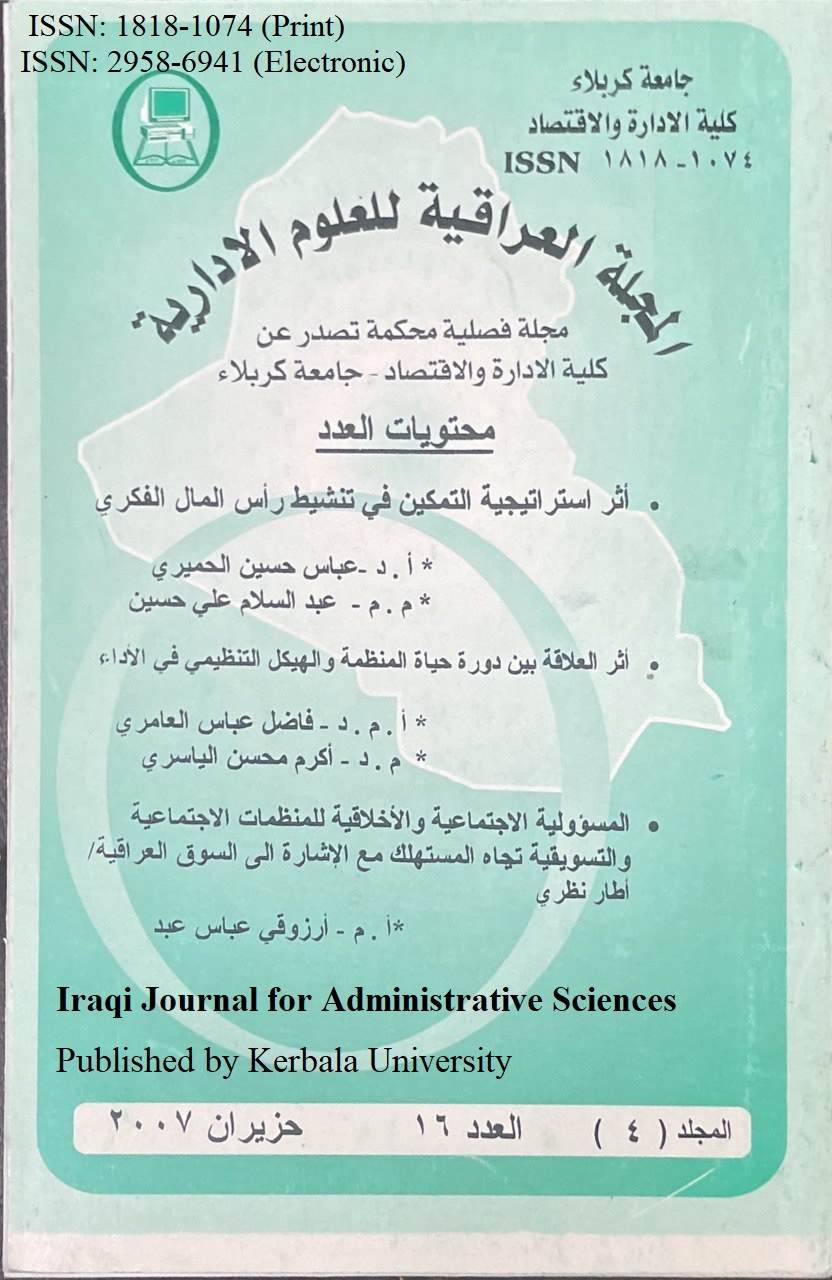The social and ethical responsibility of production and marketing organizations towards the consumer with reference to the Iraqi market/a theoretical framework
Keywords:
Social responsibility, moral responsibilityAbstract
Marketing was only known on the basis that it is a set of procedures and methods that work to increase the quantity of units produced and services sold or provided, and to obtain the largest possible amount of profits, and this is known as the stage of targeted selling (Gee, 1999: (14). This, of course, was due to the pressure resulting from the accumulation of produced units in the producers’ warehouses as a result of the focus on the quantitative aspects of the production process during the Industrial Revolution, and the subsequent developments, procedures and theories in economics and management that extended from the studies of Frederick (Tyler, the pioneer of the scientific school of management), to university studies. (Ohio), and the theories of the humanistic school that followed, which were entirely focused on increasing production to meet the growing demand at that time (Kotler 2000, 17), without considering the needs and desires of consumers as first priority, until the market reached a state of saturation, which resulted in an increase in the quantity supplied. On demand in terms of quantity and quality, alert those concerned with production affairs to the importance of marketing aspects related to the need to take into account the needs, desires and tastes of consumers before commencing the production process. This was known as the consumer-oriented stage (1999: (14). This was accompanied by the emergence of many scholars of administration, sociology, economics, politics, law, and others, as well as parties, mass organizations, consumer associations and movements that called for the necessity of meeting a set of rights and demands of consumers, such as: Security, the right to obtain information, the right to choose, and the right to hear one’s opinion (Al-Duheji, 1999: 419). Hence, these associations are the first to hold production and marketing entities directly responsible for social and ethical matters and called for the necessity of providing a free, dignified, and comfortable life for the consumer with a small amount of money. Problems, and some producing companies responded to these humanitarian calls and marketing began to be defined as: “Knowing and satisfying the needs, desires, and interests of consumers in the target market, achieving consumer satisfaction efficiently and effectively, and bringing him and society to a state of well-being (Roller, 10; 1000).”
Downloads
Published
How to Cite
Issue
Section
License
Copyright (c) 2007 College of Administration and Economics - University of Karbala

This work is licensed under a Creative Commons Attribution-NonCommercial-NoDerivatives 4.0 International License.
Authors retain the copyright of their papers without restrictions.




